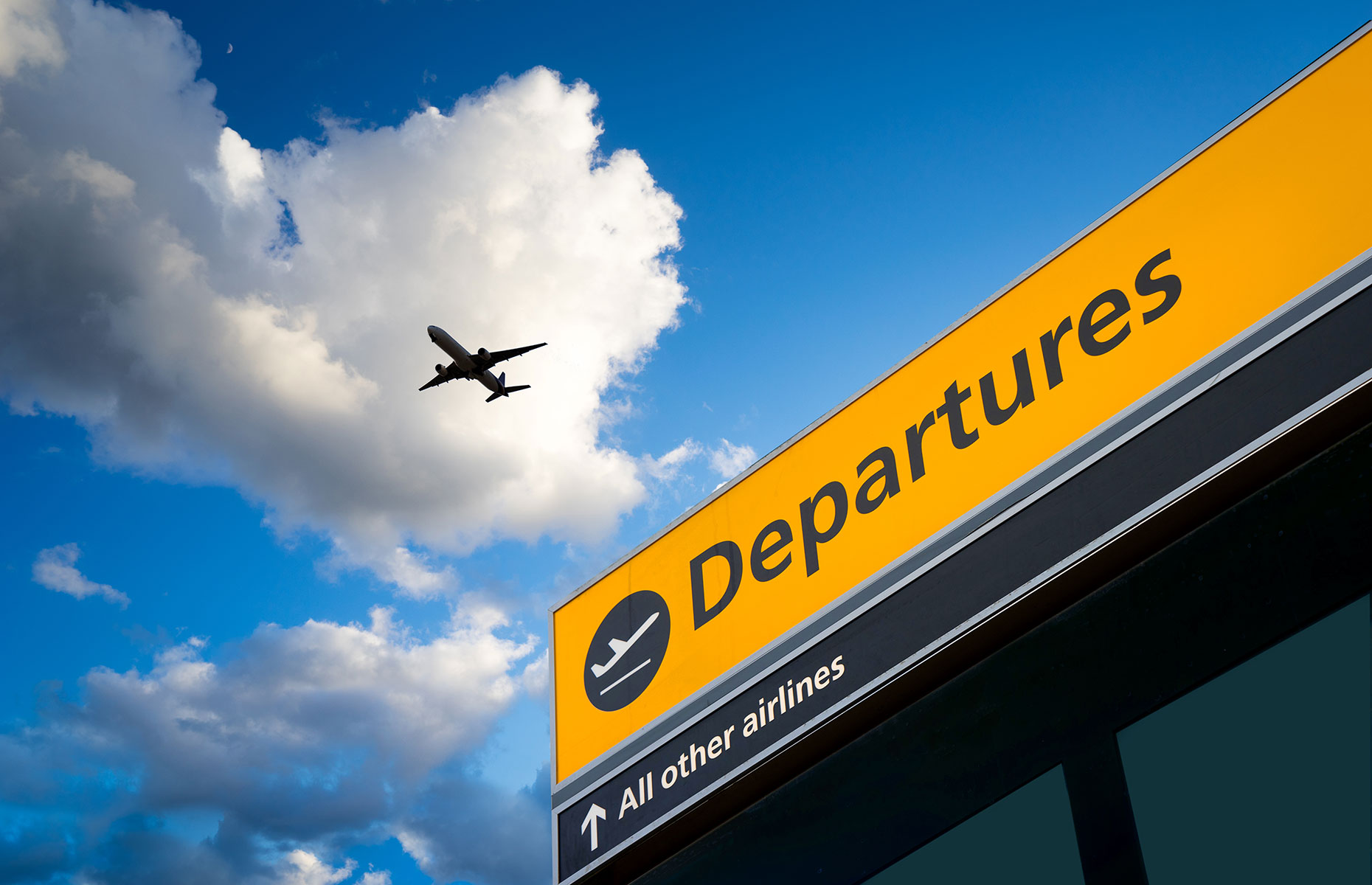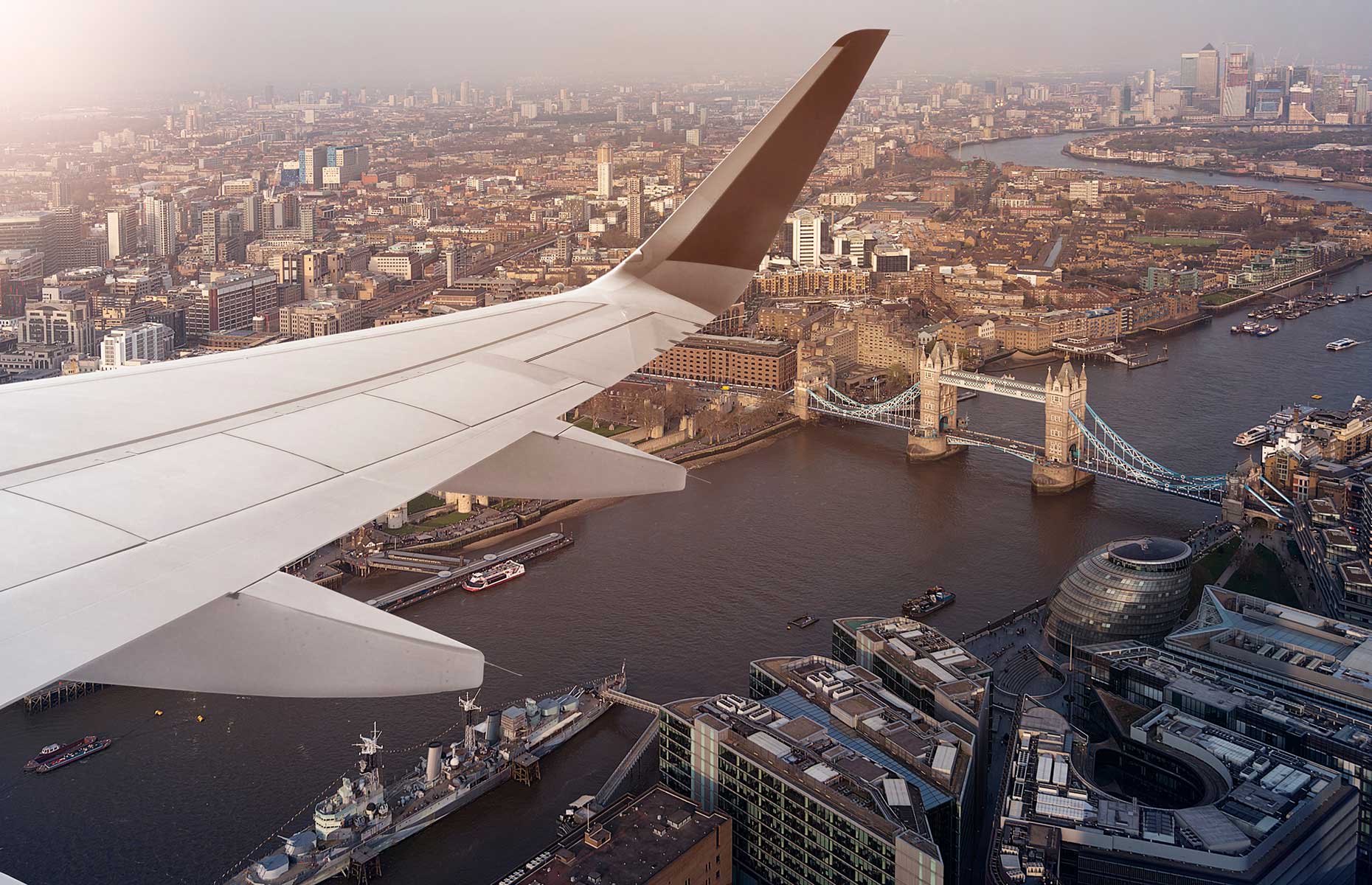COVID-19 travel advice: the latest

Whether you are doubled-jabbed or unvaccinated, here are the latest rules for both leaving and arriving in England.
It’s an ever-moving beast. Just when you think you have a handle on the coronavirus travel rules, the UK Government makes another late-evening about-turn and it's back to researching PCR (polymerase chain reaction) and antigen tests again. Or not in the case of the latest rule changes in early January.
But it’s not just the guidance that applies to people departing from or returning to the UK that we have to be mindful of.
As different countries are treating the Omicron variant with various degrees of seriousness, it’s imperative you know what the regulations at your destination too.
READ MORE: New £6 charge to enter the EU – what you need to know
What testing/forms do I need to leave the UK?
This all depends on where you are going as each country has separate regulations for entry.
The first step is to check the travel rules for your destination. For example, any British nationals 12 or over travelling to Spain will need to fill in a Health Control Form no more than 48 hours before travel and show proof of vaccination status – an NHS Covid pass is generally accepted.
 alice-photo/Shutterstock
alice-photo/Shutterstock
What testing and forms do I need to enter the UK?
What tests visitors and returning residents need depends on their vaccination status:
Fully-vaccinated travellers
There is no need to present a PCR or antigen/lateral flow test to enter the UK, whether you are a resident or visitor. Howeveryou must still:
1) Fill in a Passenger Locator Form
2) Book a lateral flow test (instead of a PCR test) after you arrive in England. You can find where to do this here.
If you test positive, you will need to self-isolate and take a PCR test.
Unvaccinated travellers
The rules remain as they were and you must:
1) Test within two days of departing for England. This can be a PCR test or a lateral flow. NHS lateral flows will not be accepted, the test must be from a private provider.
2) Book a PCR test for days two and eight of arrival. Those travellers should self-isolate for 10 days. This can be reduced to five days in England if travellers use the test and release scheme.
 phoelixDE/Shutterstock
phoelixDE/Shutterstock
How do I find testing providers?
Not-for-profit Testing For All offer a reliable and affordable service. Pre-travel PCR tests cost from £69.
There is also an independent COVID-19 PCR testing comparison network here: Covid Testing Network.
See here for the government's list of COVID-19 test providers.
What is the red list and which countries are on it?
On Wednesday 15 December all countries were removed from the red list.
What if I’m in Scotland, Wales or Northern Ireland?
For travel to England within the UK, Ireland, the Isle of Man and the Channel Islands, known as the Common Travel Area, there is no need to fill in a passenger locator form, to take any tests or quarantine.
These exemptions don’t apply if you’ve travelled outside these areas in the 10 days before arrival in England. In these cases, you must follow the rules for international travel, depending on your arrival time and vaccination status.
Please note, if you are travelling to Northern Ireland from within the Common Travel Area, you still need to do a lateral flow test before departure. Post-arrival testing is no longer a requirement.
READ MORE: Top tips for driving abroad
Latest FCDO travel advice
Please see the specific rules for travel to the most popular destinations right now:
Spain, Canaries and Balearics
Travellers to Spain from the UK must fill in a Health Control Form and show proof of vaccination status.
Children under the age of 12 years old do not need to show proof of being fully vaccinated on entry to Spain, however they must fill out the Health Control Form as above.
See the latest Spain travel advice here.
France
France has removed restrictions for vaccinated travellers, who no longer needer a compelling reason to enter.
However, vaccinated travellers must have a negative PCR or antigent/lateral flow test taken within 24 hours of departure from a private test provider. There is no need for vaccinated travellers to self-isolate either.
From 15 January 2022, those aged 18-64 years old and who have been fully vaccinated for more than seven months will need to show they've had a COVID-19 booster injection in order to access the “pass sanitaire” that allows entry to museums and restaurants.
Unvaccinated travellers will still need a compelling reason to enter France. Tourism and business are not considered compelling reasons. A full list of compelling reasons can be downloaded by clicking here and it was updated on 6 January 2022 with some additional exemptions for urgent business and transit.
All passengers must fill out an online form in addition to a "sworn statement" (déclaration sur l’honneur) form self-certifying they are not suffering from symptoms of coronavirus.
See the latest France travel advice here.
 Anthony DELANOIX/Unsplash
Anthony DELANOIX/Unsplash
Italy
For Italy you must show proof of full vaccination status (paper copies must be dated from 1 November onwards, but Italy will accept your electronic NHS record).
You must also fill in a passenger locator form and show a negative PCR test taken within 48 hours or a negative antigen/lateral flow test 24 hours prior to entry to Italy.
See the latest Italy travel advice here.
Ireland
All international arrivals into Ireland must fill in a passenger locator form, including those coming from Great Britain and Northern Ireland.
Only unvaccinated travellers need to show proof of a negative PCR test for entry, taken no more than 72 hours before entry. Unvaccinated travellers from Northern Ireland are exempt from this rule.
Vaccinated travellers need to show proof of vaccination only and your NHS record will be accepted.
It's recommended that all travellers take an antigen/lateral flow test for five consecutive days, starting from the first day in Ireland.
See the latest Ireland travel advice here.
Germany
Germany has lifted its travel ban on UK citizens. Travellers aged six or over must present proof of vaccination, proof of recovery or a negative COVID-19 test prior to arrival and present this proof on request to carriers or authorities. Germany will accept your electronic NHS record.
Those who aren't fully vaccinated can only enter if they're a German citizen or resident. Immediate relatives, such as a spouse or child aged under 18 of residents and citizens are also permitted to enter.
For the latest German travel advice see here.
Portugal
You will need an antigen/lateral flow test taken within 48 hours of departure, or a RT-PCR test taken within 72 hours of departure processed by a private provider.
Before travel you must also fill in a Passenger Locator Card.
Please note there are different forms and requirements for Madeira and the Azores.
See the latest Portugal travel advice here.
Greece
You must fill in a Passenger Locator Form before travel to Greece and show a negative COVID-19 test result (either a PCR within 72 hours before arrival or rapid antigen/lateral flow test within 48 hours of arrival) and proof of vaccination.
The Greek government also “strongly recommends” you take either a certified rapid test, or certified PCR test on both days two and four after arrival.
For the latest Greece travel advice see here.
USA
All passengers must show a negative COVID-19 test result – a PCR (also known as a NAAT test in the US) or lateral flow – taken no more than one day before travel (except under-twos), plus vaccination status.
Visitors are advised to take a second test within three to five days of arrival. Children under 17 are exempt from needing proof of vaccination.
See the latest USA travel advice here and check out requirements specific to British nationals here.
Canada
All travellers to Canada must be fully vaccinated and show a negative COVID-19 test no more than 72 hours before departure and fill in an ArriveCAN form.
You must also be prepared to explain a quarantine plan to border officials when entering as randomised testing is in place. To speed up the process you should register in advance with a testing provider at the point of arrival. You can find a full list here.
See the latest Canada travel advice here.
What next?
Stay on top of the latest travel advice for the UK here and before travel check the official government advice by country at the FCDO's website here.
Main image: Nieuwland Photography/Shutterstock
Comments
Be the first to comment
Do you want to comment on this article? You need to be signed in for this feature